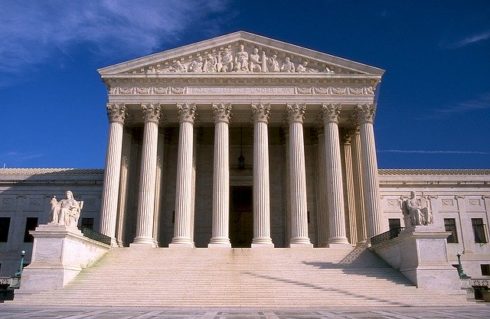
In a case that wound through the courts for a decade, the U.S. Supreme Court on Monday ruled that Google’s use of Java in its Android operating system did not infringe upon Oracle’s copyright. The ruling could have broad implications in how software is created.
At the heart of the case is Google’s use of Java API code in Android, which allowed the mobile device platform maker to do what countless other companies have done — integrate with extant code to create or extend their own software.
In a 6-2 decision (Justice Amy Coney Barrett did not hear the arguments and did note vote), the court decided that Google’s use of the Java APIs was fair. Writing the majority opinion, Justice Stephen Breyer wrote: “We assume… that the material was copyrightable. But we hold that the copying here at issue nonetheless constituted a fair use. Hence, Google’s copying did not violated the copyright law.” He further wrote that, “To the extent that Google used parts of the Sun Java API to create a new platform that could be readily used by programmers, its use was consistent with that creative ‘progress’ that is the basic constitutional objective of copyright itself.”
RELATED CONTENT:
What’s in Java 16
Java celebrates 25th anniversary
Google appeared to have the blessing of then-Sun CEO Jonathan Schwartz to use the Java APIs, but after Oracle acquired Sun in 2010, the use of the APIs became a source of contention. In a nutshell: Oracle claimed Google used some 11,000 lines of Java code without its permission and was seeking damages of around $9 billion USD, as Android is the second-most popular mobile operating system behind Apple’s iOS. On the other side, Google argued that its use of the code was protected under the “fair use doctrine,” which allows the unlicensed use of copyrighted material in cases where is just no other way to get things done. Also, in its decision, the court upheld the idea that loss of revenue does not supercede the validity of fair use.
The interesting thing about this is the open-source nature of Java, which — through the OpenJDK — allows any developer to use Java code however they see fit.
A ruling for Oracle in this case likely would have spawned an avalanche of lawsuits, seeing as much of today’s software is not written from scratch but is cobbled together through the use of APIs, because there simply is no other way to get things done. The need for advances in software is apparent in today’s world, as we move to new sources of energy, and new models for transportation, farming and manufacturing. Inhibiting this progress through court challenges would be detrimental to us all.






